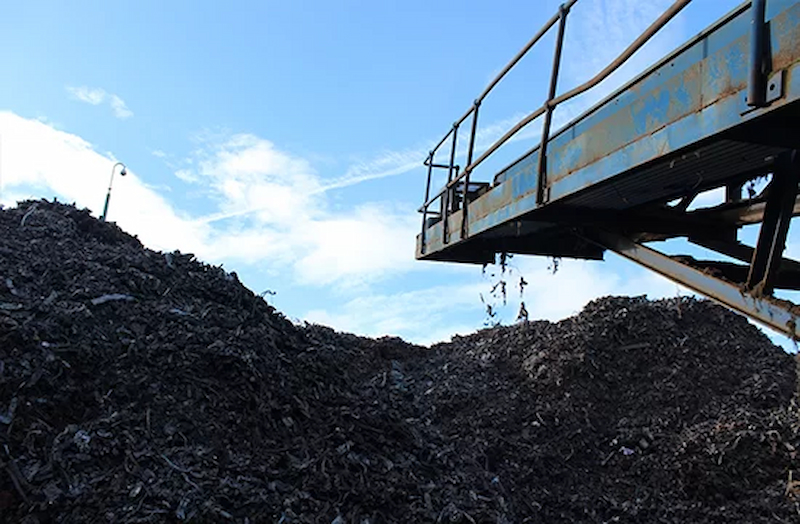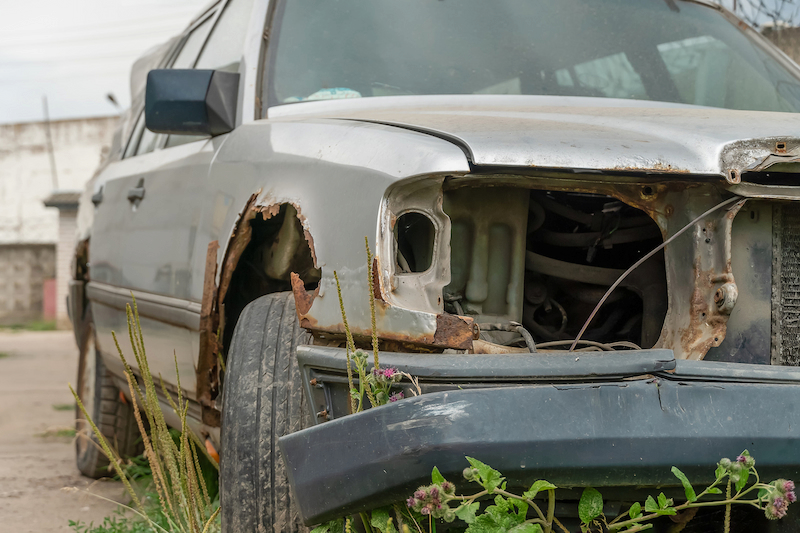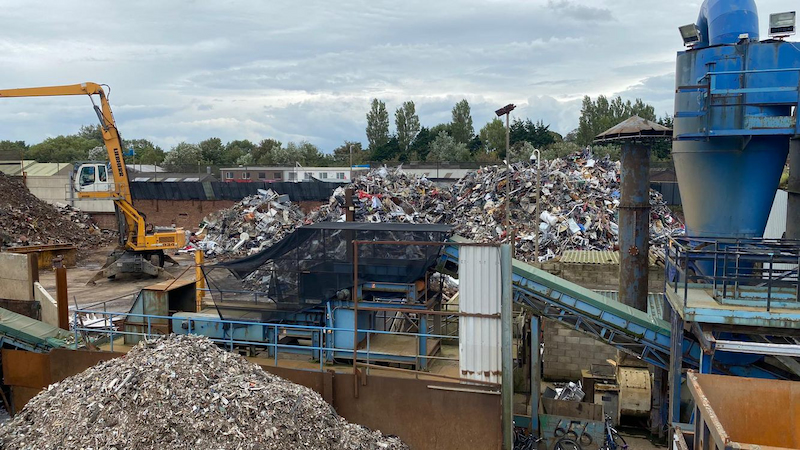As one of the largest scrap metal processing facilities in the north Lancashire area, we take pride in our services. We specialise in a variety of non ferrous metals, which means separating them from other metals and waste is essential.
We use the highly efficient eddy current separator as part of our processes. We explore our most vital piece of equipment and how we use this to separate non ferrous metals from our ferrous metal recycling process.
What Is an Eddy Current Separator?
We use an Eddy Current Separator as part of our scrap metal recycling processes here at Morecambe Metals. It is a powerful machine which uses a strong magnetic field to collect non-ferrous metals from an input of scrap metal waste. Before entering the ECS, we ensure that all metal is shredded into smaller pieces, which significantly increases the recycling rates and offers the optimum amounts of scrap metal we can recycle. The small scrap pieces enter a conveyer belt towards the Eddy Current Separator. This stage is vital to our processes to ensure we provide our buyers with only the best quality metals to reuse into other products.
How Does an Eddy Current Separator Work?
Our ECS offers a short conveyer belt to transport the previously shredded material through the machine and over the powerful magnet rotors. The magnetic rotor holds a significantly strong magnetic field. These essential components are vital to separate the non-ferrous pieces of metal from the ferrous metals on the belt. As the shredded scrap metal travels along the conveyer belt, the metals are charged with magnetic energy. Those which are conductors will absorb the charge.
Once the scrap reaches the end of the conveyer belt, it will encounter the strong magnetic rotors, where the conductors of the magnetic energy will repel the metals out of the machine, where it will be collected to be processed further. Other items on the belt, such as glass, ferrous metal and other components, will follow the path of gravity and end up in a separate pile.
The intensity of the magnet can be increased or decreased depending on the materials you are looking to separate, their density and size. This function allows you to separate various metals.
The Importance of an Eddy Current Separator
Being a large facility with capabilities of processing up to 2000 tonnes of ferrous metal per week, we rely on our Eddy Current Separator to ensure we can continue this service. Every metal has its own qualities and purposes, so it is crucial to separate them into their corresponding collections. This process allows us to ensure that the quality of the metal we sell to scrap metal buyers is of the highest standard and comes with no contaminants.
Tainted metal can delay the production of new material to put into application across various sectors of the metal industry. Sourcing recycled matter is essential to reducing mining for raw materials. As time goes on, the earth is running out of raw materials, and the process of extracting them has a significant negative impact on the environment with greenhouse gases and the destruction of natural environments.
We can help make a more sustainable future for manufacturers seeking metal for application by offering high-quality, uncontaminated recycled metals.
What Metals Can Be Separated With an Eddy Current Separator?
Only ferrous metals can be divided through an eddy current separator. This list includes;
Aluminium. This metal is very lightweight and is beneficial across many sectors to make various new products such as cans, transport vehicles, windows and doors, and the construction of new buildings.
Copper. With excellent malleability and corrosion resistance, recycled copper can be repurposed to produce electrical wiring, water tanks, plumbing systems, and so much more.
Stainless Steel. This metal is used in almost every industry. It has incredible durability, and its resistance to high temperatures makes it excellent for equipment used in the hospitality trade. Stainless steel is also straightforward to keep clean and offers medical sectors the ideal sterile surfaces.
Lead. Lead is used for several different applications. These include radiation shielding, leaded gasoline, plumbing, batteries, roofing and cladding, nuclear reactors, and weights for lifting. This metal can be recycled infinitely and is a high-value metal.
The Benefits of an Eddy Current Separator
With this type of equipment, we can separate several kinds of metal, which helps us recycle your vehicle successfully. These metals include aluminium, copper, and brass, with other metals also capable of being separated with this process. Other materials are not caught in the magnetism of the machine and are carried through it on the conveyor belt. ECS allows us to remove even the finest non-ferrous materials, which would otherwise be impossible to withdraw from the stream entirely.
Wherever metal is to be separated, an eddy current separator can help. Eddy current separators are not just suited for scrap metal recycling; they are used in various sectors and industries, and, as an eco-conscious business, we approve of this! You can find ECS machines in sectors like timber, demolition waste, municipal waste, plastic, and foundry ashes. They offer excellent benefits in separating the usable metal from our scrap after we perform an industrial dismantling for our customers.
Would you like to know more about how we work here at Morecambe Metals and the equipment we use? Or would you prefer to talk to us about your recycling needs? Feel free to contact us; our expert teams will be happy to help.




